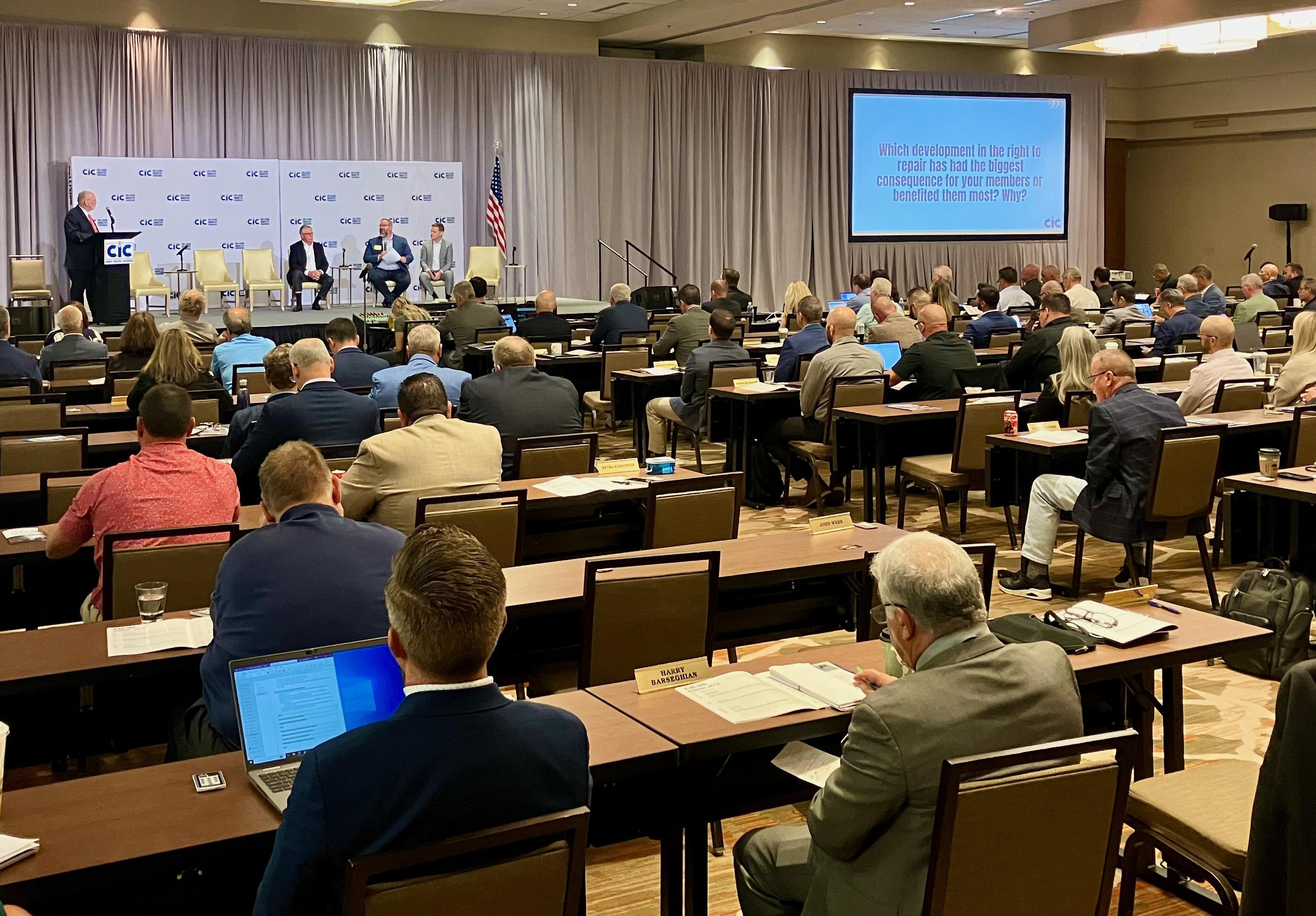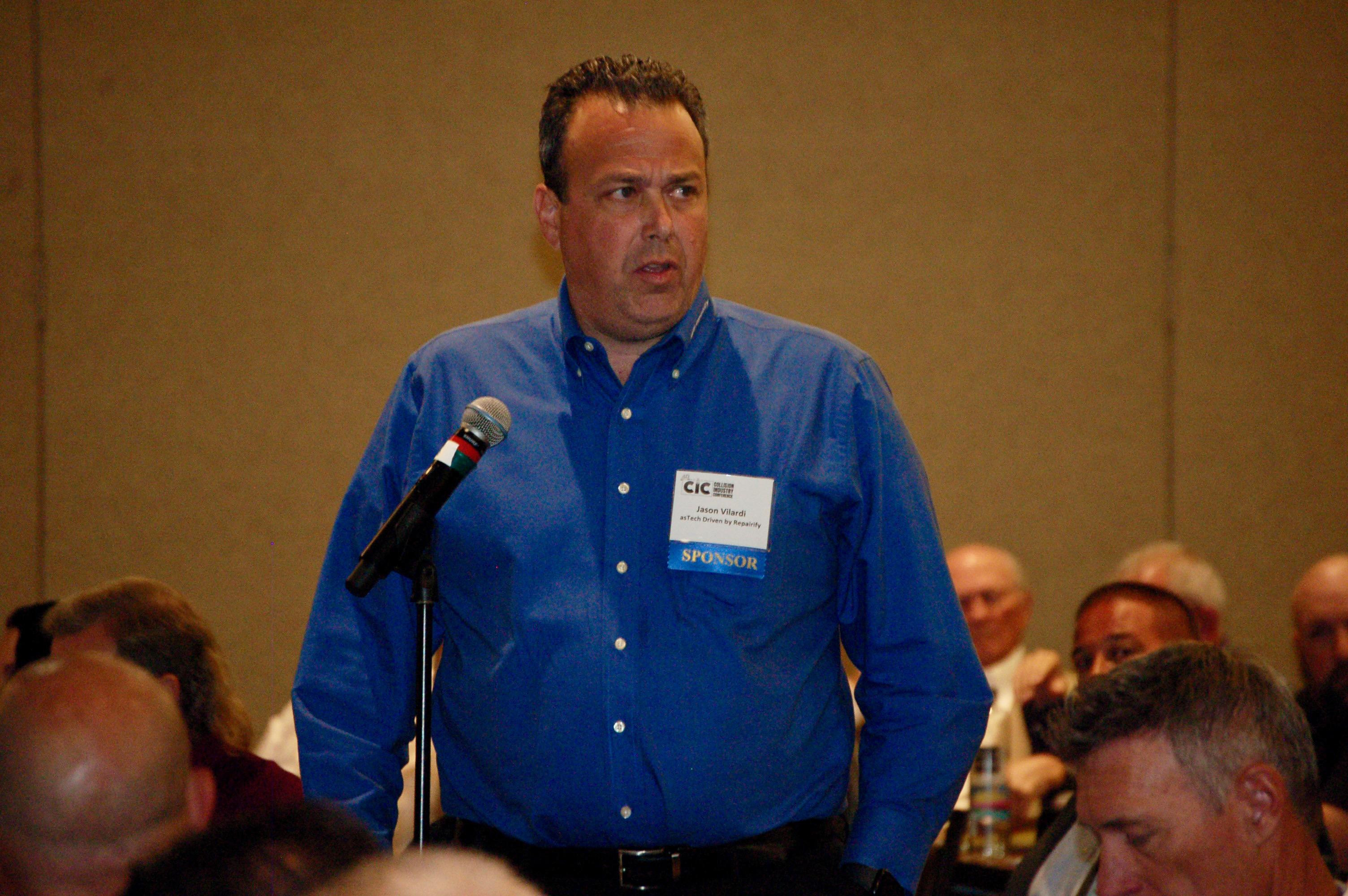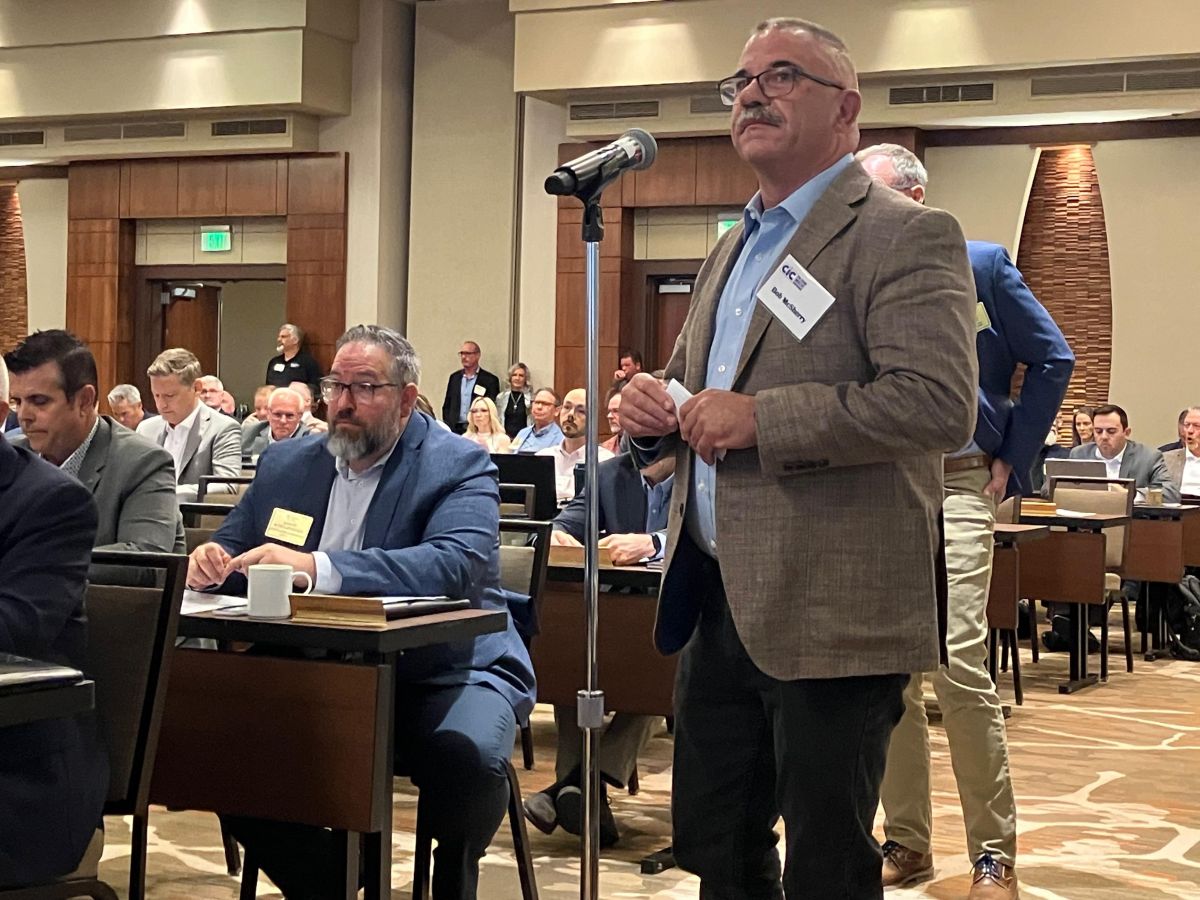As Dan Risley kicked off his first meeting as chairman of the Collision Industry Conference (CIC), held in Denver in July, he said one of his goals for leading the meeting is to foster more participation by attendees.
“I want to foster an environment that encourages your voice to be heard and your thoughts to be heard, where you feel comfortable going up to that mic and talking,” Risley said. “Don't just be a spectator. Enjoy all the information that will be shared by the committees, but also don't be afraid to be a participant.”
Attendees clearly took Risley at his word, with attendees lining up at the first open mic session of the meeting to question and lambast an agreement between GEICO and asTech the industry learned about the week of the meeting.
A notification sent to GEICO’s direct repair shops said the insurer, in an effort to address “the complexity of tracking a variety of price points” for calibration and scanning services from different vendors, had “reached an agreement with asTech to standardize pricing and reduce friction for diagnostic, programming and calibration operations.”
 The Collision Industry Conference drew hundreds of attendees from around the country to Denver in July.
The Collision Industry Conference drew hundreds of attendees from around the country to Denver in July.
Under the agreement, GEICO wrote, decisions related to pre- and post-repair scans will include “consideration” of asTech’s Rules Engine, which “uses data from tens of thousands of scans to determine when a remote OEM scan is needed or when a local OEM-compatible scan can be used, which has been verified to yield equivalent results to that of an OEM tool.” GEICO is not requiring its direct repair shops use asTech, but those that do not “may need to supply additional documentation to justify procedures or pricing that deviates from those provided.” The pricing change is set to go into effect in early August.
Shops Question the Agreement
“What I don’t get is how would a vendor enter into a standardized pricing agreement on behalf of their customer,” Barry Dorn of Dorn’s Body & Paint in Mechanicsville, VA, said during the open mic session dominated by discussion of the agreement, which included representatives of asTech working to explain and defend their decision.
“I remember when I first started coming to CIC a long time ago, we had carriers at that point that were trying to [purchase and] drop-ship parts to us and let them take care of that," Dorn said. "So when I read this, it reminded me a lot of those days.”
Bob McSherry of North Haven Autobody in Connecticut said he isn’t interested in having one of his vendors enter into a pricing agreement with a third party on his behalf.
“I don’t need your help doing that with an entity that is not a direct customer of the service you are providing to me,” McSherry said. “This is a special kind of stupid. I’ve been a long-time (asTech) user, and I can tell you that comes to an end when I get back tomorrow.”
“I strongly object to third parties engaging in negotiating, setting prices, coming up with agreements or fixing or controlling a market price on behalf of me, my industry, my customers, anything like that,” said Jeff Butler of Haury’s Collision in Seattle.
Others had questions for GEICO, including whether the insurer would expect shops that are not part of its direct repair program to accept the standardized pricing.
“I know from my own experience, oftentimes an insurer will say, ‘We only pay X because other shops accept that,’” said Darrell Amberson of LaMettry’s Collision in Minnesota.
Amberson also questioned how a recommendation from a third party like asTech that an aftermarket scan is sufficient in some instances can override automaker procedures.
“Does that tell me that the OEM repair procedures that we base so many other decisions on are now secondary in this arrangement?” Amberson said. “In other words, they’re considering asTech the standard?”
If a representative from GEICO was at the meeting, they did not comment on the agreement, but Risley said the company would be asked if they want to present at the next CIC in November.
asTech Responds to Concerns
Representatives of asTech were at CIC, however, and responded to the questions and concerns raised about the agreement with GEICO, including defending its Rules Engine as a reliable basis for decisions related to the use of an OEM or aftermarket scan.
 Jason Vilardi of asTech said the company’s agreement with GEICO is part of its effort “to streamline processes for the shops in order to make their reimbursement easier.”
Jason Vilardi of asTech said the company’s agreement with GEICO is part of its effort “to streamline processes for the shops in order to make their reimbursement easier.”
“We’ve done hundreds of thousands of scans with over 23,000 different vehicle make, model and trim levels using our Rules Engine,” said Jason Vilardi, vice president of sales, insurance and estimatic relations for asTech. “We have a top carrier that is endorsing that process to assist them in the decision-making process, which we believe is going to streamline things for our customers. Our current customers that are using us today…should not feel a change in the reimbursement process, because we’re going to make sure that they’re made whole.”
Vilardi later returned to the reimbursement issue.
“So a customer will still be in the same position they were beforehand,” he said. “They’re not making less money from us on a scan today than they made yesterday. Although the price is less, the cost is less.”
He said he believes that agreement will remove some friction points.
“Listen, this is not a mandatory thing that somebody has to follow,” he said. “Shops always still have a choice. This is something that we decided to do, that we’ll continue to do, in going down the path of trying to streamline processes for the shops in order to make their reimbursement easier.”
“If a shop wants to do OEM scans only, great,” Vilardi said. “That’s the gold standard. And if that’s what they want to do, we can accommodate that. If they want to go another route, there’s another route out there for them. If you look at the announcement, it just said that [GEICO is] going to look at [the Rules Engine] as one of the factors to determine which way to go. It doesn’t mean just because our Rules Engine says X, they’re 100% going to follow that. It means that they’re going to take that into consideration.”
“We didn’t really take this as being this massively negative thing,” he said. “We’ve got a top carrier who most people would say they have struggled with, and now we have them bought in on what we do, how we do it, and are willing to, in our minds, step up and actually cover more OEM scans than they ever previously did.”
Other Topics at CIC
Aside from the discussion of the GEICO and asTech agreement, CIC in Denver stuck to its published agenda, which included a Parts and Materials Committee presentation focused on blending. Paint company representatives, for example, shared the increased complexity of refinish products, the role ADAS plays in refinish, and the variability in the process based on blend location, panel size and aftermarket paint protection.
Risley said the committee’s presentation helped provide the “why” behind decisions by the information providers in the last year to provide more flexibility to blend time calculations.
The Emerging Technologies Committee offered a presentation on the importance of maintenance, inspection and testing of low-voltage systems and batteries, including how the stability of a low-voltage system relates to accurate vehicle diagnostics and calibrations.
And I-CAR and ASE discussed their efforts to create tools to help ensure entry-level technicians are proficient in five key areas.
Watch for more coverage of the meeting here.
















John Yoswick